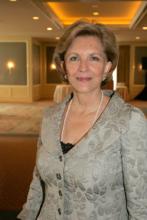 63MD
63MD
What is your hometown?
My home town is Tama, Iowa, and I have been living in San Francisco for the past 43 years.
How/when did you become interested in science and medicine?
From the time I was a small child I said I wanted to be a doctor. There were no doctors in my family or close to us or any precipitating event. My parents were supportive and allowed me to skip my junior year in high school with enough credits to graduate. I was a good student and I was also involved in many activities-especially playing the flute.
Please highlight your major career achievements, awards, discoveries, etc.
I practiced anesthesiology for 40 years and my liability insurance only had to pay for one tooth. During my 31 years at Davies Medical Center I was on the medical executive committee from 1988-1995 in many positions, including the only female chief of staff. When that was completed I helped create a Women’s Care Program for the hospital. In the late 70's and early 80's I was a member of the Medical Quality Review Committee under the Medical Board of California.
How or why did you choose the University of Iowa for your education and medical training?
I knew the University of Iowa Medical School had an excellent reputation and when accepted, I immediately accepted in return. The teachers in the anesthesia department were very influential in my selecting it as my specialty. Dr. Bill Hamilton (43BA, 46MD, 51R-Anesthesia) wrote letters for my residency and I was accepted at several programs because of his recommendation. I chose University of California at San Francisco because I wanted to live in San Francisco. The University of Iowa gave me a sound education and the confidence to believe I could be successful.
What are some of your outside interests?
Non-profit work has always been an outside interest of mine. I have been in the auxiliary or on the board of several non-profit organizations since 1975. Currently I am the medical consultant and on the board of a health foundation. I am also president of the board of the Museum of Performance & Design. These last two have more than kept me busy since my retirement from anesthesia in July, 2006.
Do you have an insight or philosophy that guides you in your professional work?
Knowing what you can do and what you cannot do is important in the practice of medicine. You have to put the patient first, and in anesthesia it’s especially important to always be vigilant. You need to be dedicated to doing what is right. I had a wonderful career that I loved, and worked at a hospital where I was respected for my ability. Knowing when to pick your battles makes life easier. When my work became too much about business I knew it was time for me to retire.
If you could change one thing about the practice or business of medicine, what would it be?
Unfortunately medicine has to be about business now as well as excellent care and I don't see that changing. Our technical advances have outstripped our ability to pay for them. Hopefully soon we will be able to provide basic care for everyone, but not everyone will be able to have everything.
What one piece of advice would you give to today's medical students?
Only attend medical school if you want to practice the art, as well as science, of medicine. Read books by Rachel Remen, a physician that writes about the mind/body holistic health movement and the role of the spirit in health and recovery from illness. Since the practice of medicine will only be more technical, remember to be compassionate - touching the patient does help healing.